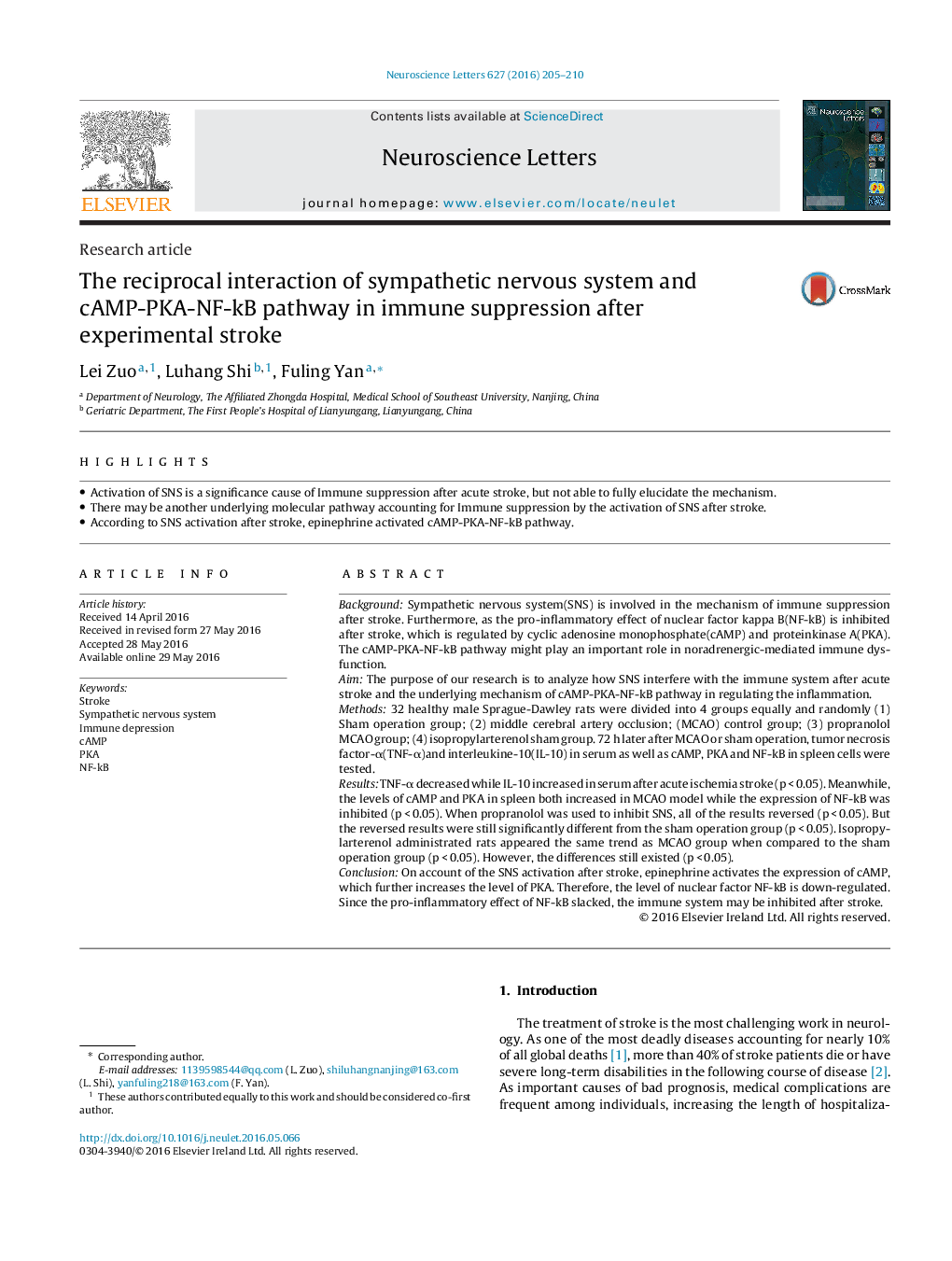| کد مقاله | کد نشریه | سال انتشار | مقاله انگلیسی | نسخه تمام متن |
|---|---|---|---|---|
| 6279503 | 1615072 | 2016 | 6 صفحه PDF | دانلود رایگان |

- Activation of SNS is a significance cause of Immune suppression after acute stroke, but not able to fully elucidate the mechanism.
- There may be another underlying molecular pathway accounting for Immune suppression by the activation of SNS after stroke.
- According to SNS activation after stroke, epinephrine activated cAMP-PKA-NF-kB pathway.
BackgroundSympathetic nervous system(SNS) is involved in the mechanism of immune suppression after stroke. Furthermore, as the pro-inflammatory effect of nuclear factor kappa B(NF-kB) is inhibited after stroke, which is regulated by cyclic adenosine monophosphate(cAMP) and proteinkinase A(PKA). The cAMP-PKA-NF-kB pathway might play an important role in noradrenergic-mediated immune dysfunction.AimThe purpose of our research is to analyze how SNS interfere with the immune system after acute stroke and the underlying mechanism of cAMP-PKA-NF-kB pathway in regulating the inflammation.Methods32 healthy male Sprague-Dawley rats were divided into 4 groups equally and randomly (1) Sham operation group; (2) middle cerebral artery occlusion; (MCAO) control group; (3) propranolol MCAO group; (4) isopropylarterenol sham group. 72 h later after MCAO or sham operation, tumor necrosis factor-α(TNF-α)and interleukine-10(IL-10) in serum as well as cAMP, PKA and NF-kB in spleen cells were tested.ResultsTNF-α decreased while IL-10 increased in serum after acute ischemia stroke (p < 0.05). Meanwhile, the levels of cAMP and PKA in spleen both increased in MCAO model while the expression of NF-kB was inhibited (p < 0.05). When propranolol was used to inhibit SNS, all of the results reversed (p < 0.05). But the reversed results were still significantly different from the sham operation group (p < 0.05). Isopropylarterenol administrated rats appeared the same trend as MCAO group when compared to the sham operation group (p < 0.05). However, the differences still existed (p < 0.05).ConclusionOn account of the SNS activation after stroke, epinephrine activates the expression of cAMP, which further increases the level of PKA. Therefore, the level of nuclear factor NF-kB is down-regulated. Since the pro-inflammatory effect of NF-kB slacked, the immune system may be inhibited after stroke.
Journal: Neuroscience Letters - Volume 627, 3 August 2016, Pages 205-210